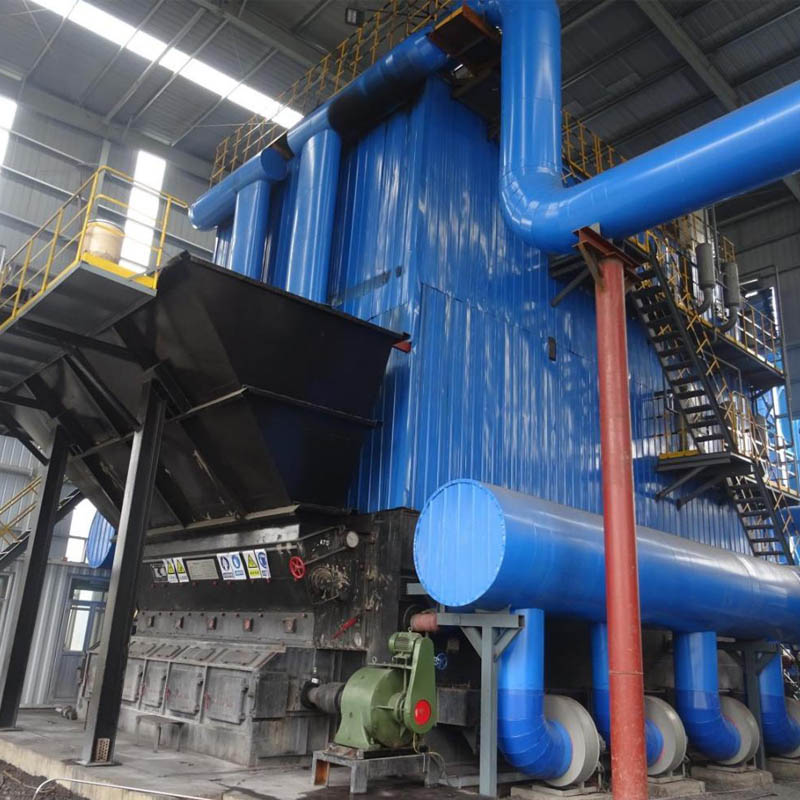
Noy . 09, 2024 22:00 Back to list
Understanding the Function and Importance of Hot Water Boilers in Heating Systems
What is a Hot Water Boiler?
A hot water boiler is an essential component of many residential and commercial heating systems. Its primary function is to generate hot water for heating spaces, providing hot water for domestic use, or supporting industrial processes. In this article, we’ll take a closer look at the workings of hot water boilers, their types, functions, and the benefits they offer.
How Hot Water Boilers Work
The basic operation of a hot water boiler involves heating water, which is then circulated throughout a building via a system of pipes and radiators or underfloor heating systems. The heating process typically originates from a fuel source, such as natural gas, oil, or electricity, that heats the water within the boiler.
Once the water reaches the desired temperature, it is pumped out through the piping system to where it is needed. As the heated water passes through radiators or heating units, it releases its heat, warming the surrounding air. The cooled water is then returned to the boiler to be reheated, continuing the cycle.
Types of Hot Water Boilers
There are several types of hot water boilers, each designed to meet different heating demands and efficiency levels. Here are a few common types
1. Standard Boilers These boilers operate on a simple system where water is heated and distributed without advanced controls. They are often less efficient compared to modern options but are still widely used due to their reliability and lower initial cost.
2. Combination Boilers (Combi Boilers) These are compact units that provide both heating and domestic hot water from a single system. They do not require a separate hot water storage tank, making them suitable for smaller living spaces. Combi boilers are known for their energy efficiency and convenience.
3. System Boilers These boilers use a separate hot water cylinder to store water, allowing for a larger volume of hot water to be available at any time. They are ideal for homes with high hot water demands, as multiple taps can be used simultaneously without a significant drop in pressure.
4. Condensing Boilers Modern condensing boilers are highly efficient, utilizing heat from the exhaust gases to preheat incoming water. This design minimizes energy waste and maximizes the boiler’s efficiency, making it a popular choice for environmentally conscious consumers.
what is a hot water boiler

5. Electric Boilers For homes without access to natural gas, electric boilers provide an excellent alternative. They are generally smaller and easier to install but may have higher operational costs depending on local electricity rates.
Benefits of Hot Water Boilers
Investing in a hot water boiler comes with numerous benefits, making them a preferred choice for many households and businesses
- Energy Efficiency Many modern hot water boilers are designed to be energy-efficient, reducing fuel consumption and lowering energy bills. High-efficiency boilers can save homeowners significant amounts of money over time.
- Consistent Supply of Hot Water Hot water boilers provide a reliable supply of hot water, ensuring that households have access to the necessary amenities, especially during peak usage times.
- Comfort A well-functioning hot water heating system enhances indoor comfort, maintaining a stable and warm environment during cold weather.
- Versatility Hot water boilers can be integrated into a range of heating systems, including radiators and underfloor heating, adapting easily to individual preferences and home designs.
- Environmental Impact By selecting energy-efficient models, homeowners can reduce their carbon footprint. Condensing boilers, in particular, are designed to minimize emission levels and conserve natural resources.
Conclusion
In summary, hot water boilers play a vital role in heating systems, offering comfort, efficiency, and convenience. Their ability to provide a steady supply of hot water while adapting to various heating demands makes them an indispensable part of modern residential and commercial infrastructures. As technology continues to advance, hot water boilers are becoming increasingly efficient, contributing to energy-saving initiatives and environmental sustainability. Whether you’re considering a new installation or assessing your current system, understanding the basics of hot water boilers is essential for making informed decisions about your heating needs.
-
High-Efficiency Commercial Oil Fired Steam Boiler for Industry
NewsJul.30,2025
-
High-Efficiency Biomass Fired Thermal Oil Boiler Solutions
NewsJul.30,2025
-
High Efficiency Gas Fired Thermal Oil Boiler for Industrial Heating
NewsJul.29,2025
-
High-Efficiency Gas Fired Hot Water Boiler for Sale – Reliable & Affordable
NewsJul.29,2025
-
High Efficiency Biomass Fired Hot Water Boiler for Industrial and Commercial Use
NewsJul.29,2025
-
High-Efficiency Biomass Fired Hot Water Boiler for Industrial Use
NewsJul.28,2025
Related PRODUCTS






















